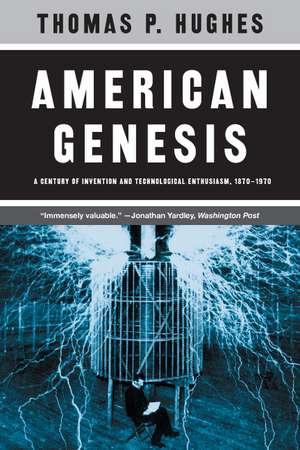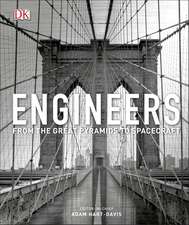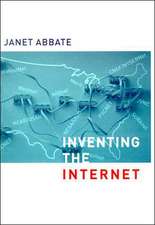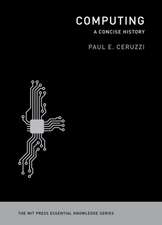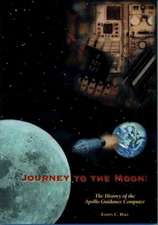American Genesis: A Century of Invention and Technological Enthusiasm, 1870-1970
Autor Thomas P. Hughesen Limba Engleză Paperback – 12 iun 2004
The book that helped earn Thomas P. Hughes his reputation as one of the foremost historians of technology of our age and a finalist for the Pulitzer Prize in 1990, American Genesis tells the sweeping story of America's technological revolution. Unlike other histories of technology, which focus on particular inventions like the light bulb or the automobile, American Genesis makes these inventions characters in a broad chronicle, both shaped by and shaping a culture. By weaving scientific and technological advancement into other cultural trends, Hughes demonstrates here the myriad ways in which the two are inexorably linked, and in a new preface, he recounts his earlier missteps in predicting the future of technology and follows its move into the information age.
Preț: 283.21 lei
Nou
Puncte Express: 425
Preț estimativ în valută:
54.19€ • 57.95$ • 45.18£
54.19€ • 57.95$ • 45.18£
Carte tipărită la comandă
Livrare economică 17 aprilie-01 mai
Preluare comenzi: 021 569.72.76
Specificații
ISBN-13: 9780226359274
ISBN-10: 0226359271
Pagini: 548
Ilustrații: 118 halftones
Dimensiuni: 159 x 233 x 38 mm
Greutate: 0.76 kg
Ediția:1
Editura: University of Chicago Press
Colecția University of Chicago Press
ISBN-10: 0226359271
Pagini: 548
Ilustrații: 118 halftones
Dimensiuni: 159 x 233 x 38 mm
Greutate: 0.76 kg
Ediția:1
Editura: University of Chicago Press
Colecția University of Chicago Press
Notă biografică
Thomas P. Hughes is the Professor Emeritus in the Department of the History and Sociology of Science at the University of Pennsylvania and a Distinguished Visiting Professor at the Massachusetts Institute of Technology. The recipient of a Guggenheim fellowship and a member of the American Philosophical doctorates from Northwestern University and the Swedish Royal Institute of Technology. A member of the Swedish Royal Academy of Engineering Sciences and the U.S. National Academy of Engineering, he is the editor of seven books and author of four, including American Genesis: A Century of Invention and Technological Enthusiasm, 1870-1970, a finalist for the Pulitzer Prize.
Cuprins
Foreword
Acknowledgments
Introduction: The Technological Torrent
A Gigantic Tidal Wave of Human Ingenuity
Choosing and Solving Problems
Brain Mill for the Military
No Philanthropic Asylum for Indigent Scientists
The System Must be First
Taylorismus + Fordismus= Amerikanismus
The Second Discovery of America
Tennessee Valley and Manhattan Engineer District
Counterculture and Momentum
Notes
Index
Acknowledgments
Introduction: The Technological Torrent
A Gigantic Tidal Wave of Human Ingenuity
Choosing and Solving Problems
Brain Mill for the Military
No Philanthropic Asylum for Indigent Scientists
The System Must be First
Taylorismus + Fordismus= Amerikanismus
The Second Discovery of America
Tennessee Valley and Manhattan Engineer District
Counterculture and Momentum
Notes
Index
Recenzii
"Hughes writes with sweep and detail. He links diverse phenomena like the military-industrial complex and modern art and architecture with his overall vision that order and control were the inevitable result of technological progress. His is an epic tale told with a rhythm and cadence that match it."
"Immensely valuable."
"To be sure, readers who don't look for theoretical argument in history books won't regret its absence in American Genesis. They will enjoy, as I did, its informative accounts of major inventors and organizers--Henry Ford and Frederick Taylor as well as Edison, but most of all Elmer Sperry, the inventor not only of the gyroscope but also of many automatic control systems."
"Masterful and stimulating. . . . It is Hughes's mastery of the history of technology that distinguishes this book from previous efforts to depict history as technology . . . Many people have deplored the lack of a single volume giving a coherent, well-written account of what has been learned since 1970 about the role of technology in American history since 1870. Thomas Hughes has done something about it."
Nominated for the Pulitzer Prize
